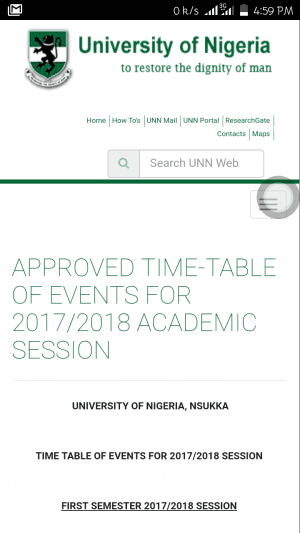
Why UNN Students Shun Library Usage:

Library is said to be a store of knowledge, guiding knowledge seekers in their quest for facts on any subject.
Library is an integral part of any knowledge-oriented entity.
Before the advent of the Internet, knowledge seekers used the library for extensive research. Given its serenity, the library is believed to be the best place for assimilation. For most part of the pre-computer age, library remained the impeccable source of information and education.
Similar Posts:
Today, values attached to the library seem to have been eroded. The level of patronage of library by students has reduced in this Internet age. This development is worrisome.
For instance, there is a growing lack of interest in the use of the library among students of the University of Nigeria, Nsukka (UNN). The Nnamdi Azikiwe Library in UNN is reputed to be one of the biggest in the academic world in Africa, with the capacity to accommodate over 7,500 users at once.
The facility is fitted with Internet service to relieve users of the stress of flipping through voluminous books and materials. To ensure students regularly consult the library for more knowledge after lectures, the university introduced GSP 111 – Use of Library.
Despite these measures, some students still do not use the library for their research work. While they complain of stringent library rules and cumbersomeness of the library materials, officials accuse them of laziness.
“Students are lazy,” Mr Vincent Ekwelem, UNN Deputy Librarian (Africana Section) said, adding: “Their unwillingness to keep to rules also account for why most students do not want to use the library.”
Students also complain that the library is not safe to keep their personal effects while reading. in the past, student-users were allowed to go into the library with their bags and other personal effects. But that has been stopped because of the rising wave of insurgency.
The measures have forced students to leave their personal effects at the base of two trees opposite the library complex. The items are kept there at the owners’ risk.
But the security measures, students said, affect their using of the library. Items such as laptops, money, bags and phones have reportedly been stolen from the base of the trees.
Augustina Eze, a 300-Level Mass Communication student, who has stopped going to library, said: “My bag was stolen last session on the day I wrote GSP 106 examination. I had decided to do a revision in the library before going to write the examination. When I came out, I could not find my bag, which contained my school fees’ receipts, flash drive and text books. I needed to show those receipts so I could be allowed to take the paper. That was the day I lost interest in going to the library.”
Hyacinth Ijomanta, 500-Level Electrical and Electronics Engineering student, said his bag was stolen last February when he went to source a material for his assignment in the library.
Hyacinth said: “Before the incident, I have always avoided using the library because of the fear that my bag could be stolen.”
Officials believe something should be done fast to check the trend.
Ekwelem said depending on Internet materials may reduce education quality, since internet is flooded with unreliable materials. He said materials got from the library can be confirmed through references.
Winifred Okafor, a post-graduate student of Pharmacy, noted that students’ inability to use the library for their research has led to rise in plagiarism. According to her, students end up doing shoddy project research without being able to defend the theses.
Wilfred Aziegbe a 200-Level Mass Communication student, who does not use the library, urged the management to relax the rules and provide item lockers for users to keep their personal effects. If this can be done, Wilfred said, many students would begin to show interest in going to the library.
Augustina agreed, emphasising that the management must provide rooms where students can safely keep their belongings while reading. (The Nation)



